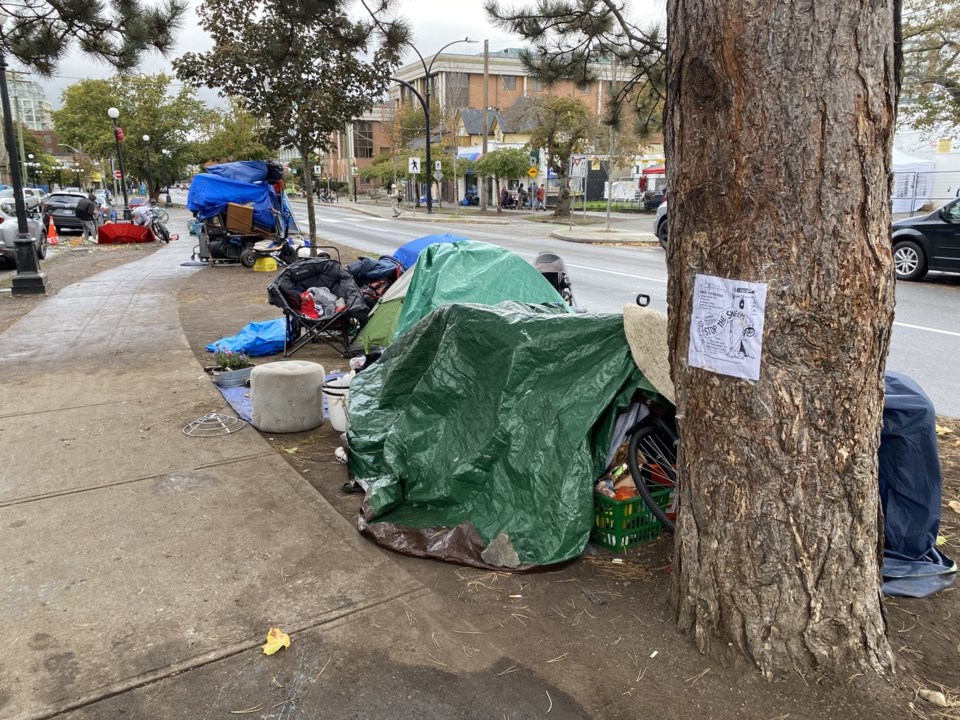VICTORIA, B.C. — A "safety plan" has been released by Victoria police that includes nearly $80,000 in overtime wages for officers as police and the city work to remove growing homeless encampments on city streets.
The Victoria Police Department unveiled the plan on Tuesday to deal with what it says is "growing entrenchment and the increased densification" of encampments on Ellice Street and Pandora Avenue, the street where a paramedic was attacked and police were swarmed by a crowd back in July.
Police say the streets and surrounding areas have seen an increase in "violence and hostility," prompting emergency personnel to stop going to calls on a stretch of Pandora Ave. without a police escort.
The department says in a statement that public safety concerns loom because tents and structures that make up the encampments remain, and police have found weapons and fear "vulnerable persons being victimized."
The statement says a "routine police presence" in the area can't fix the public safety issues, and Chief Del Manak says the safety plan is aimed at stamping out "criminality and street disorder."
The three-stage plan says four to six weeks of more foot patrols in the area will act as an "immediate deterrent against criminal activities," then two or three weeks of removing "problematic structures" such as abandoned tents, and the final stage involves the removal of encampments and placement in housing for those living in them.
This report by The Canadian Press was first published Aug. 6, 2024
The Canadian Press



